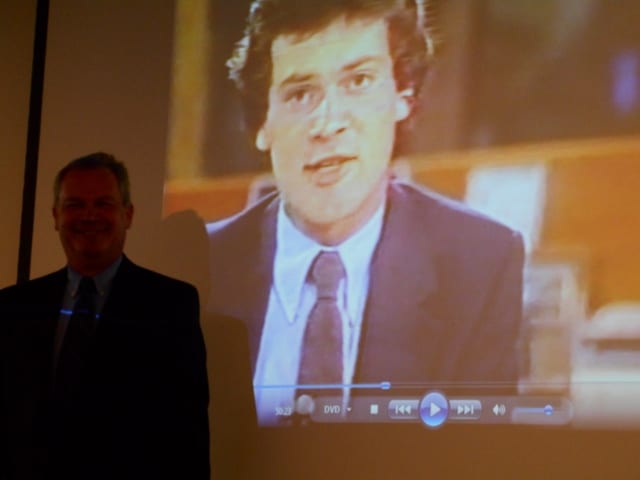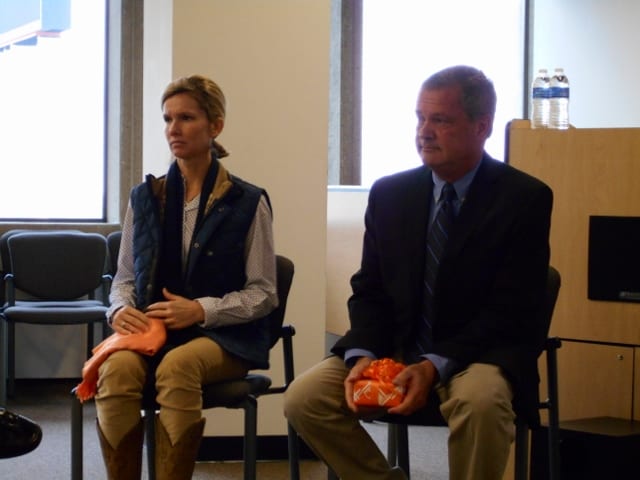Sports broadcaster Fred Cowgill speaks at UT



Fred Cowgill, sports director for WLKY, said that he walked into the University of Tennessee on Wednesday and smiled.
Cowgill and his wife Cindy came down from Louisville to lecture for the UT Chapter of the National Sportscasters and Sports Writers Association’s first spring event on Jan. 15. He talked to students and faculty about modern challenges in broadcasting. He opened with a personal story about how he arrived in the career and used examples from his life to encourage journalism students.
“You have to chase your dreams because you might not get another chance,” Cowgill said.
Cowgill graduated from UT in 1979 and has since won multiple awards for sports broadcasting. Cowgill has covered many major sporting events during his 33 year long career including five national college basketball championships, 14 Final Fours and 27 Kentucky Derbies. He most memorable event was the 2008 PGA Ryder Cup in Valhalla.
Despite his 27 year run at WLKY, Cowgill said that he originally was not interested in broadcasting work. His first experience on television was at UT when a student anchor became ill, and Cowgill was asked to fill in.
“It really changed everything for me,” Cowgill said. “UT changed my life.”
Eighteen months later he was working at CNN Atlanta, where at the age of 22, he was put on air again. At his lecture, he confessed that he was so nervous that time that he tried to imitate 10 people at once during the taping.


He also spoke about challenges for the future of the market place and what interns should do to stand out.
“Raise the bar higher and people will reach higher,” Cowgill said about a hard working mentality.
In Louisville, he has an internship program at WLKY to help assist people in the business. Cowgill said in a media environment like Knoxville and Louisville, the worth of interns has not diminished. The problem with interns, Cowgill said, is that although they have the technical ability, they are not very social.
“Do you want to be here?” was Cowgill’s question to students getting ready to enter the market.
In a time with more video than ever, instant gratification is expected by an audience with 24/7 interaction with media and an average household that watches TV eight hours a day, Cowgill told the audience. The business has changed, and the internet is the number one game-changer.
He ended his lecture by reminding the audience to, when in doubt, “be true to what you know to be true.”
Edited by Maggie Jones

